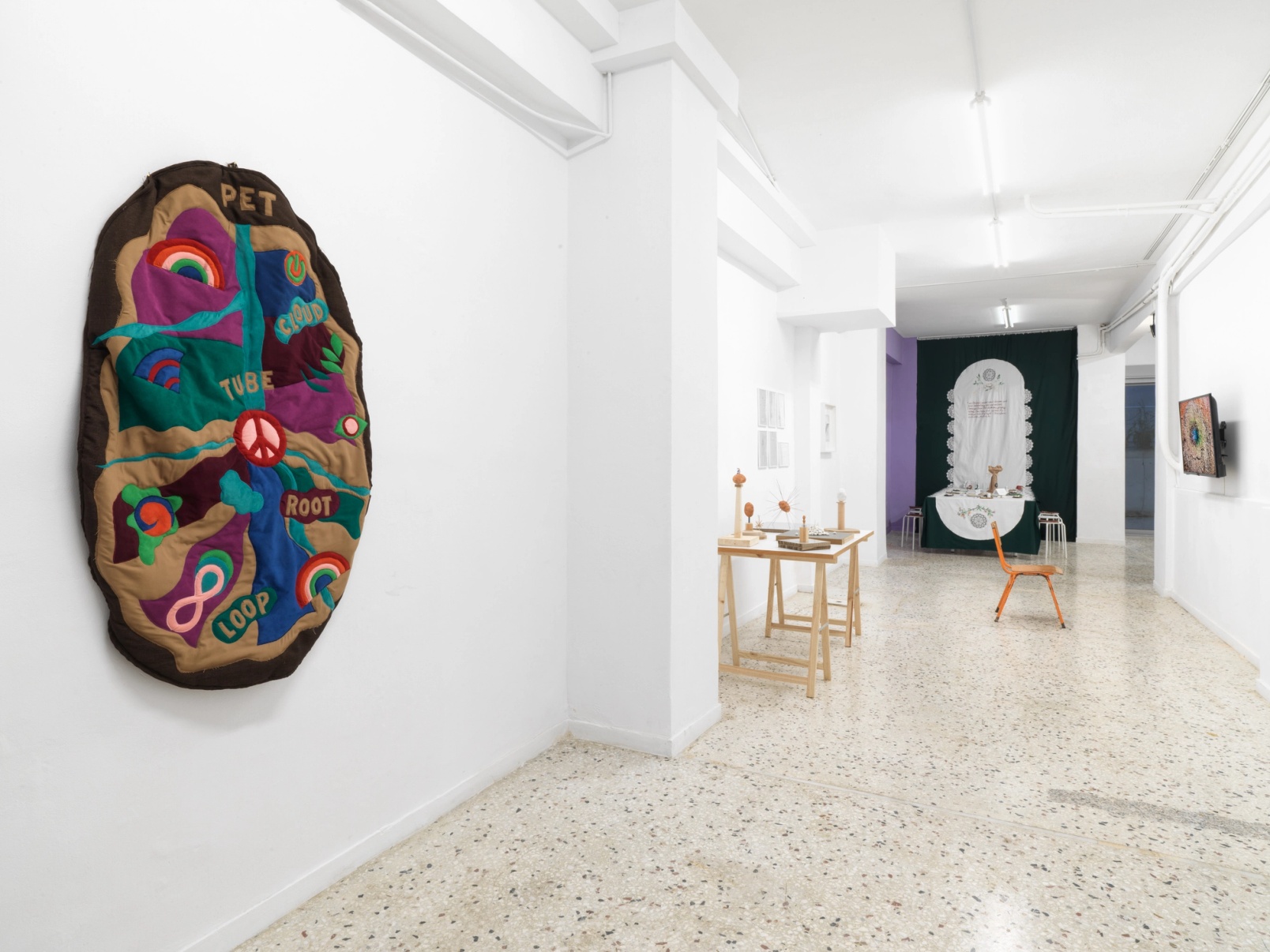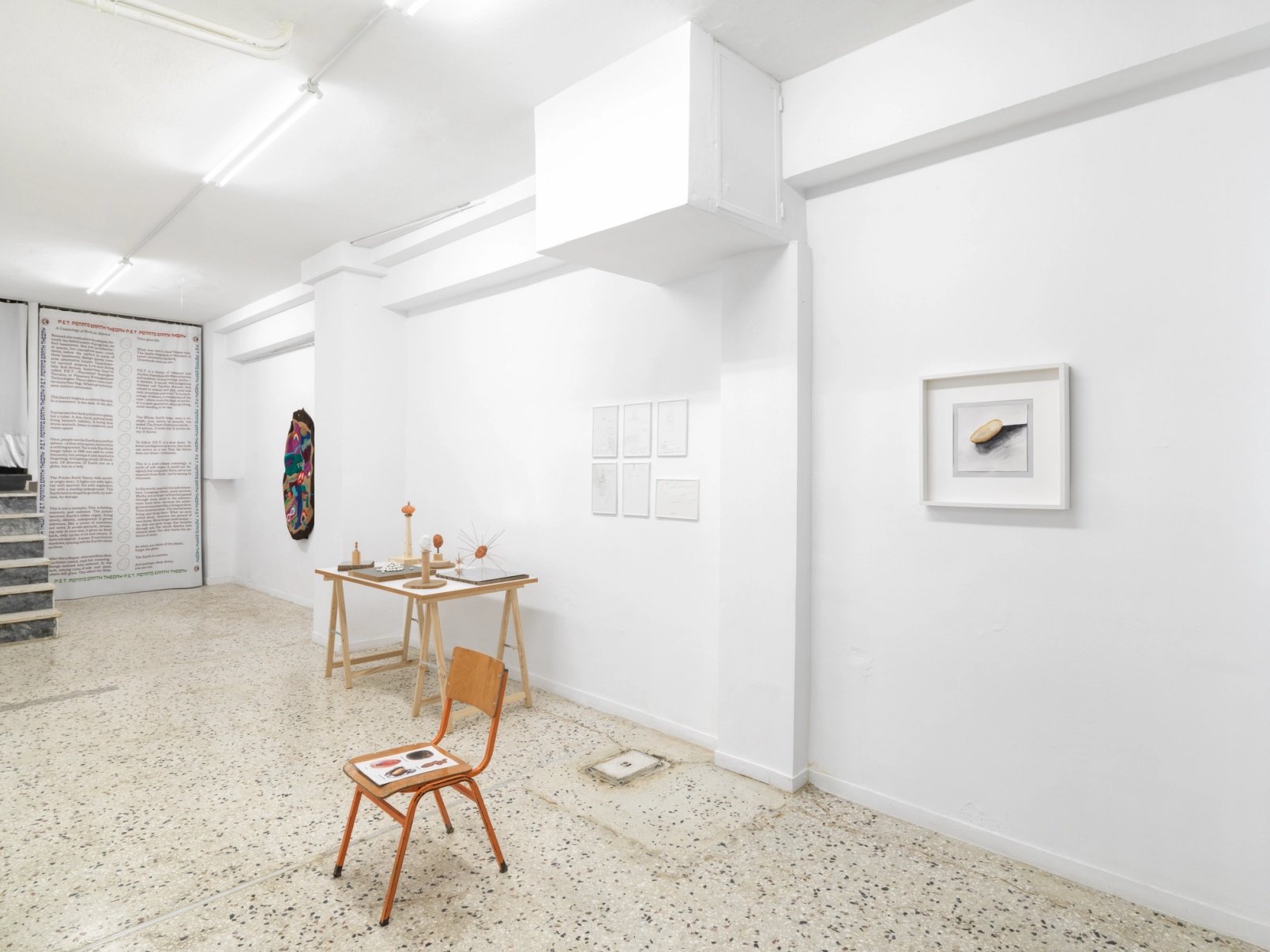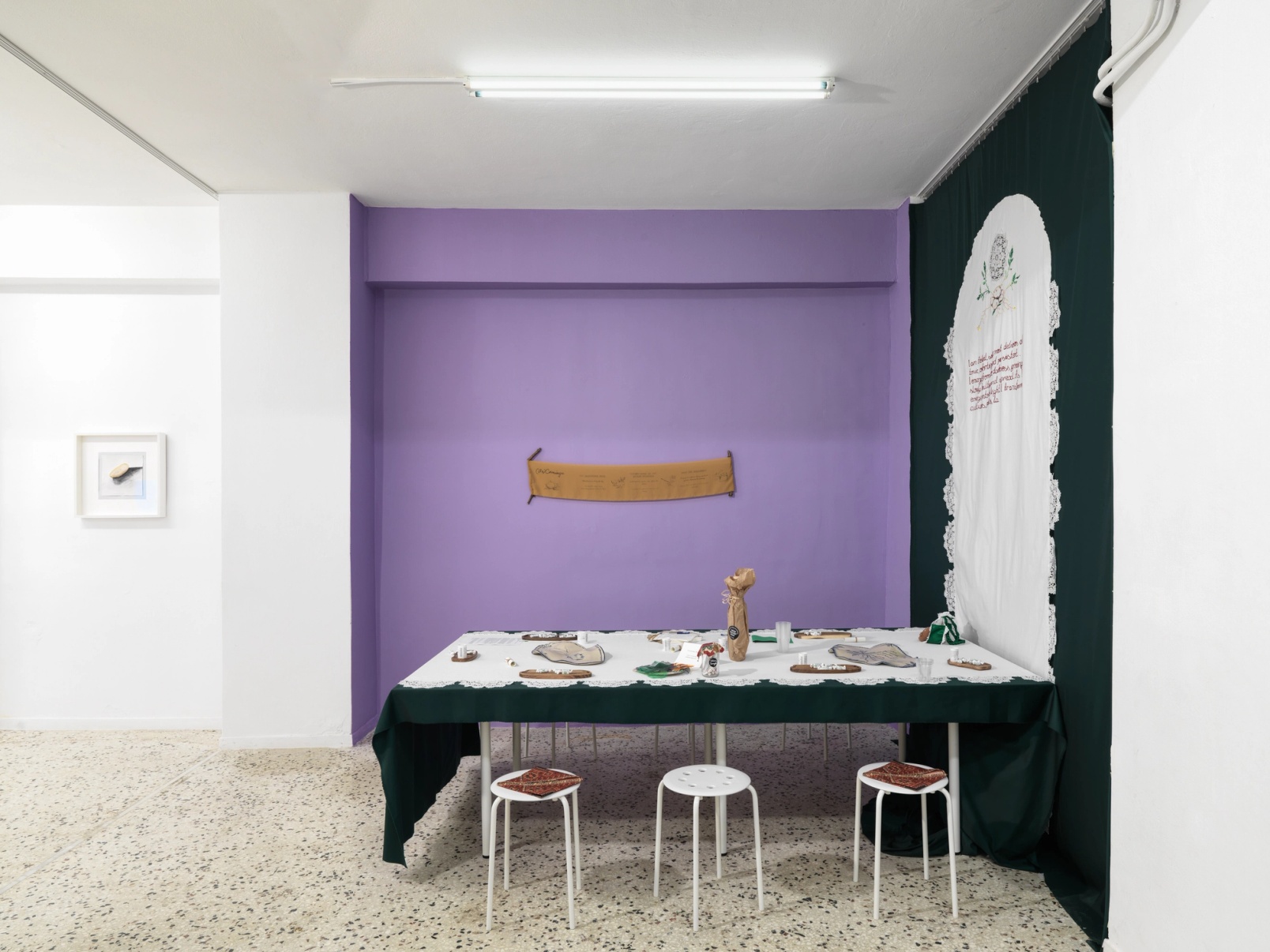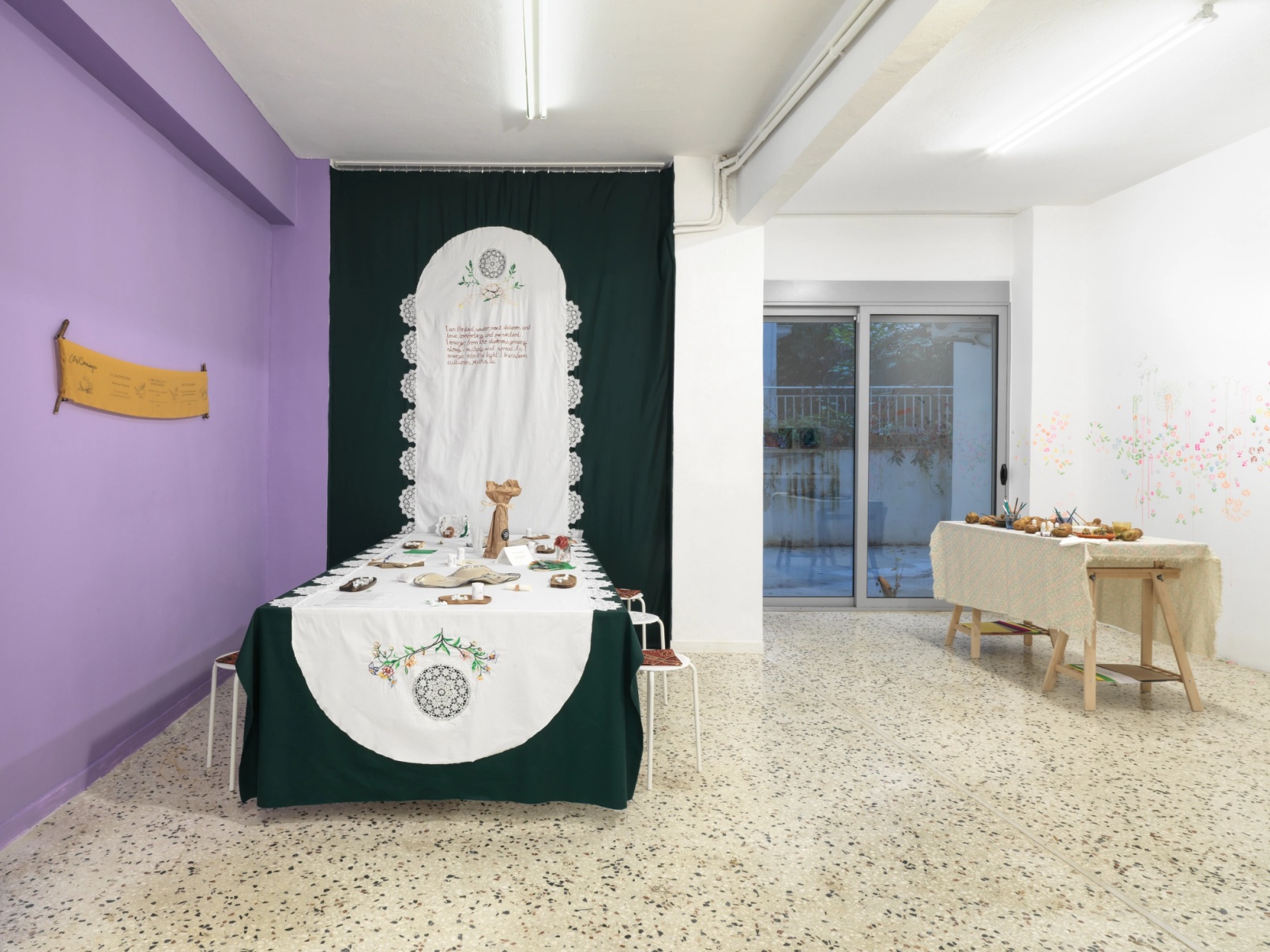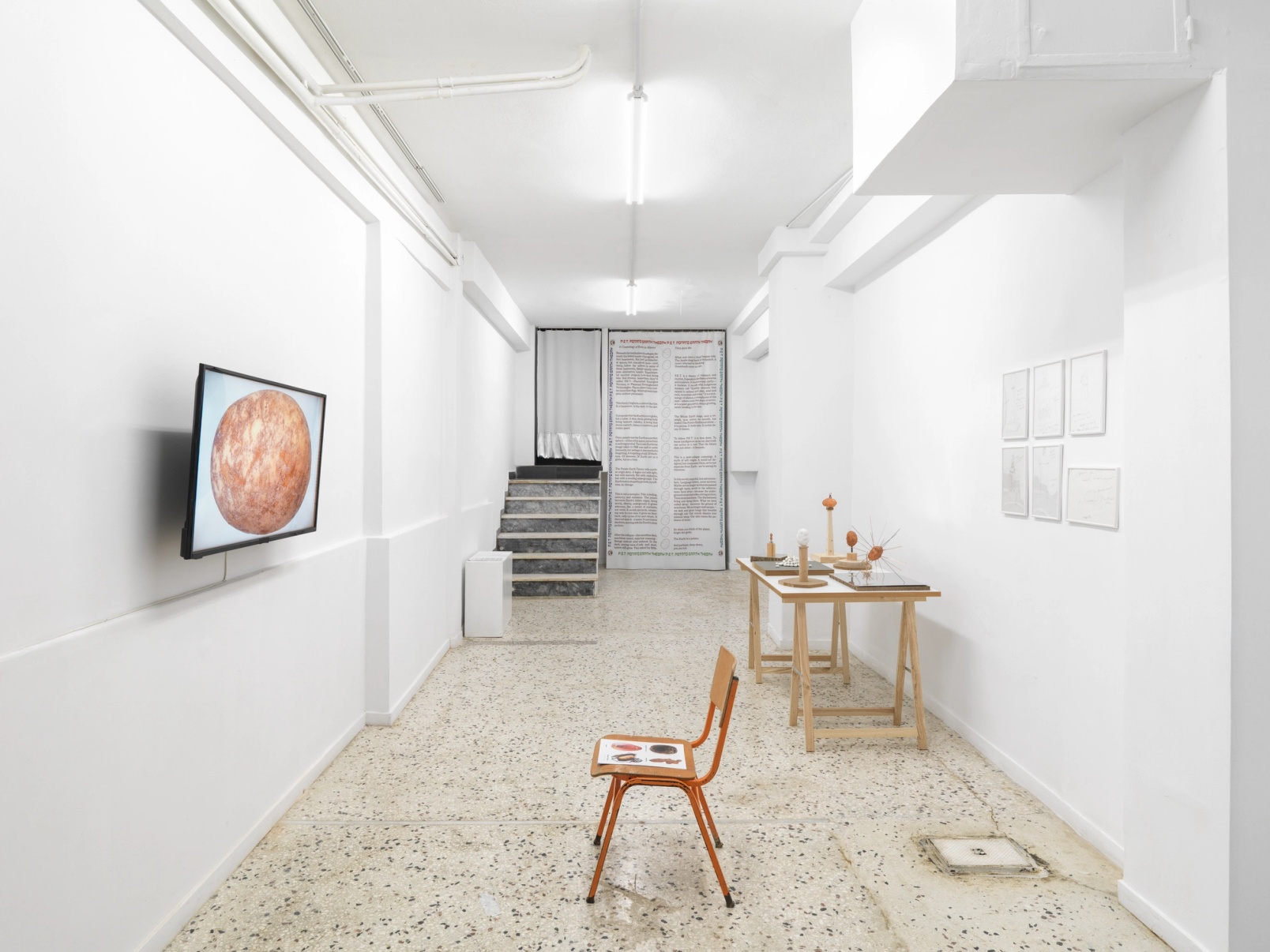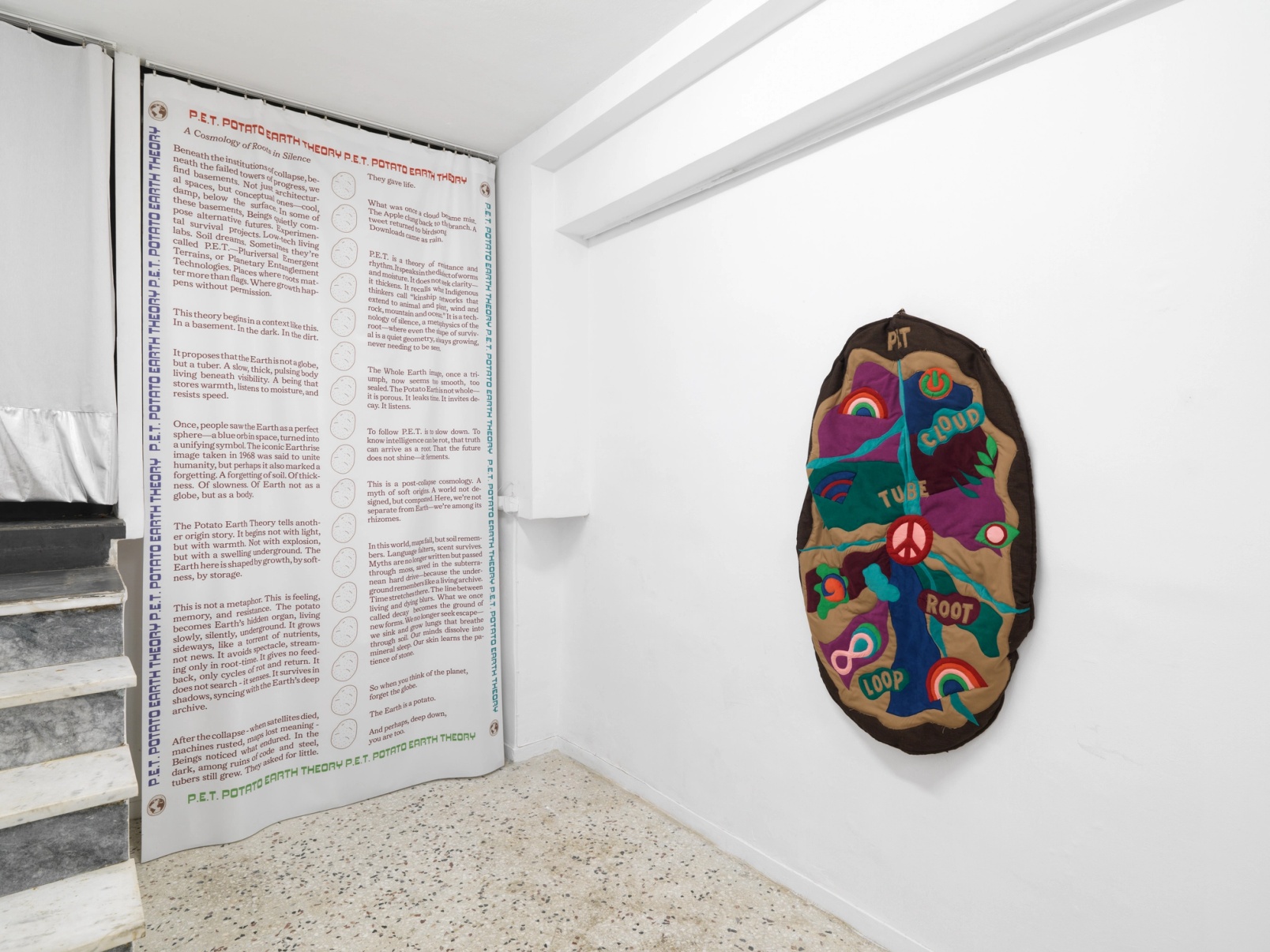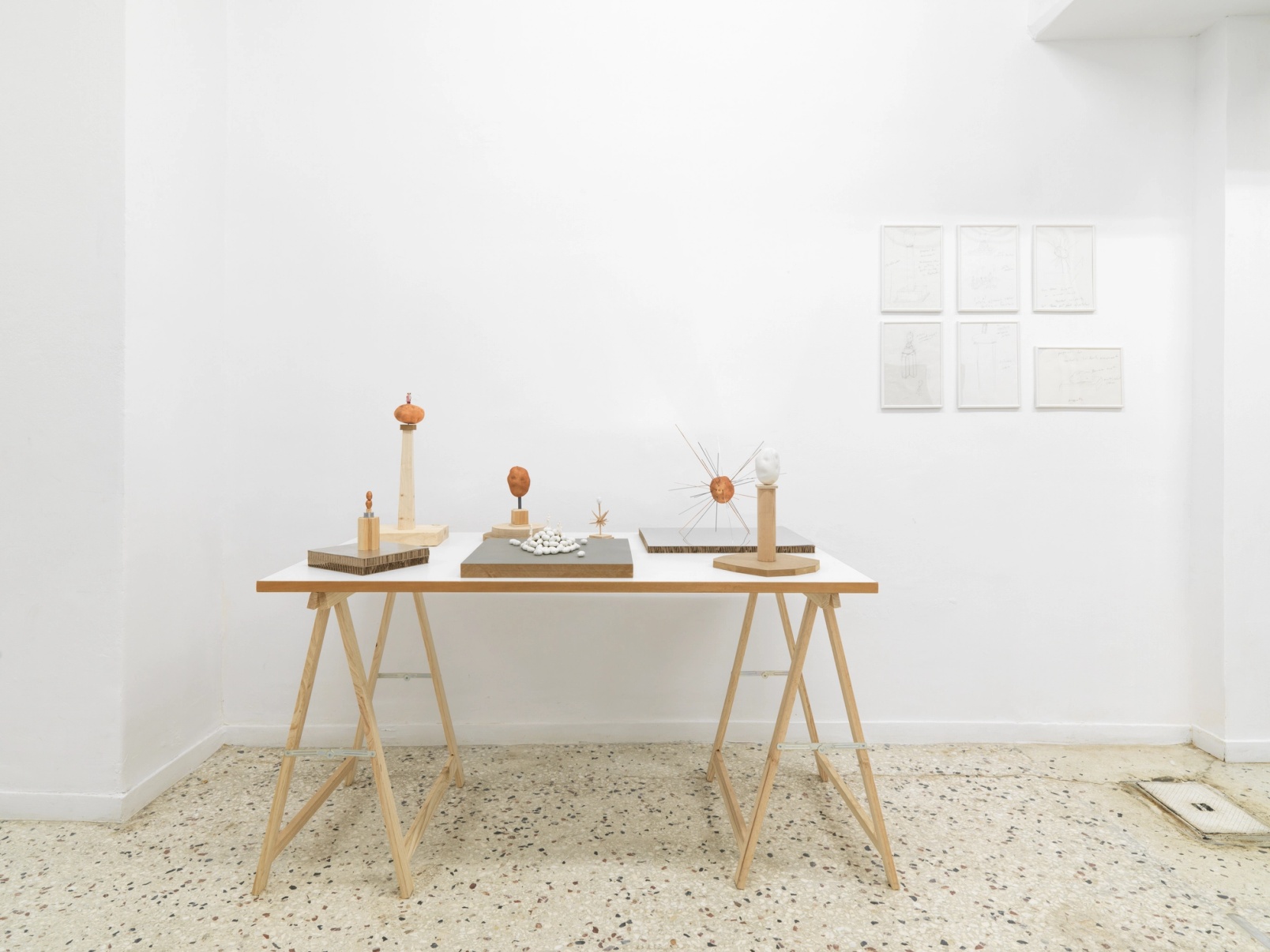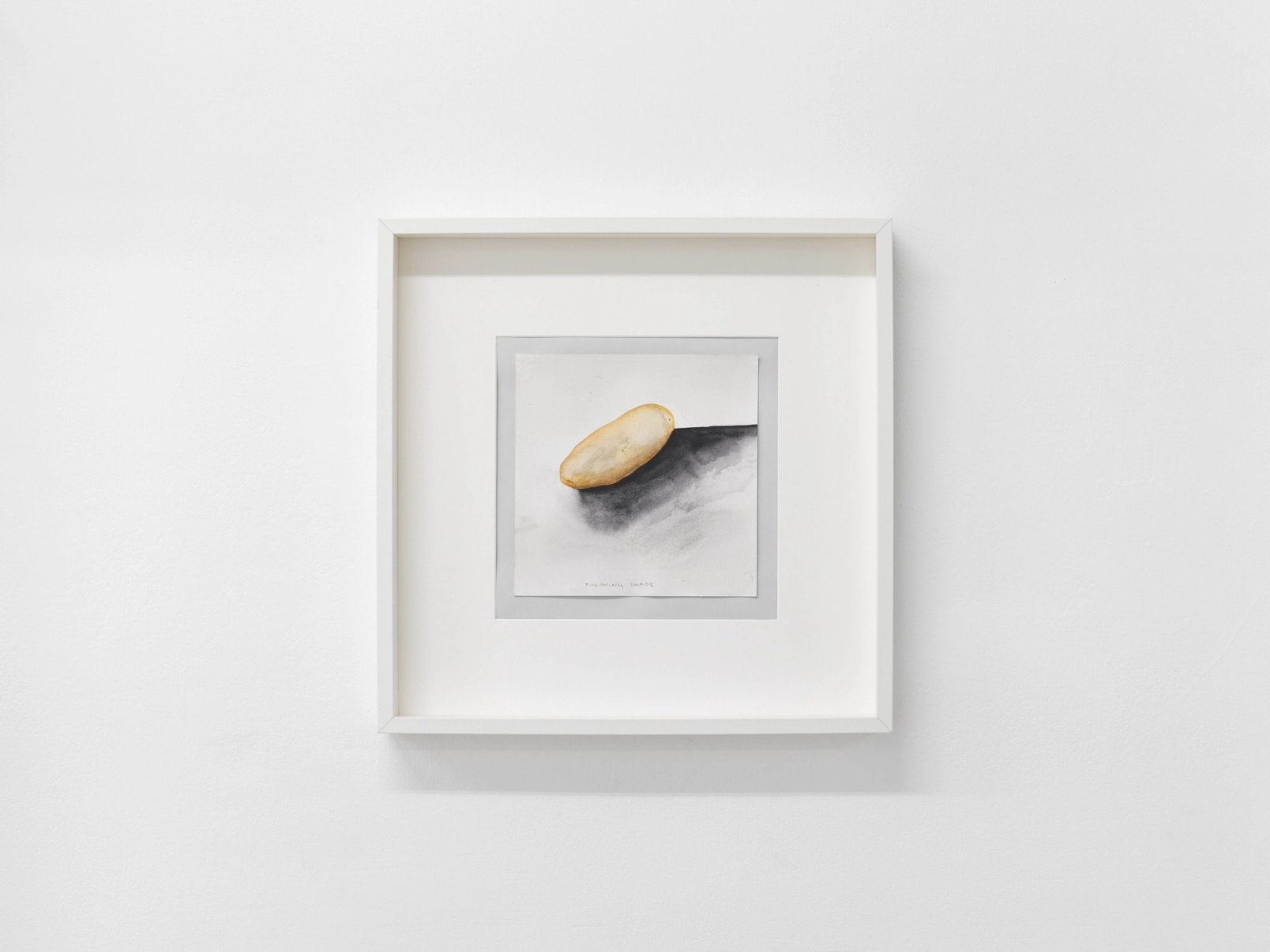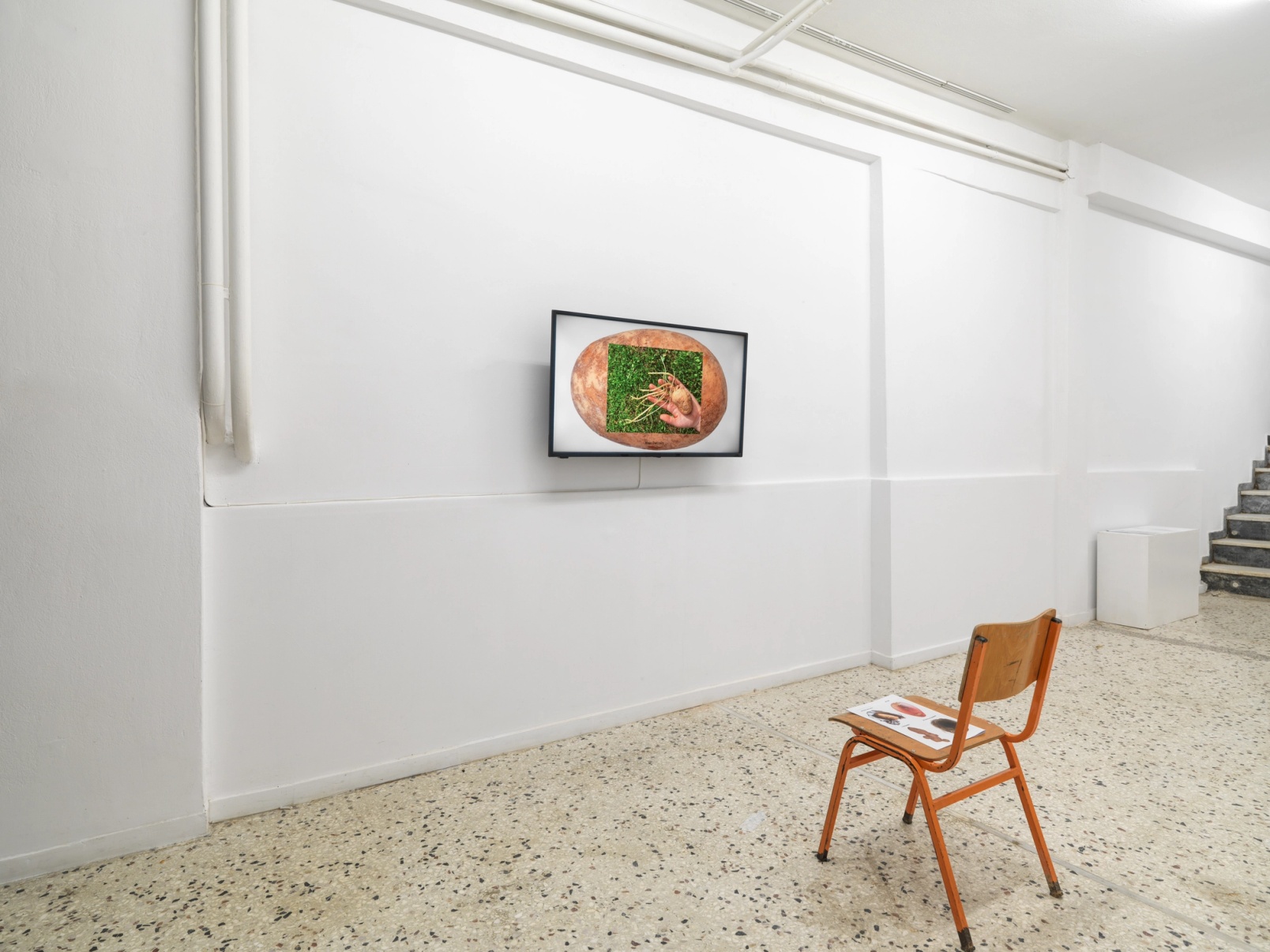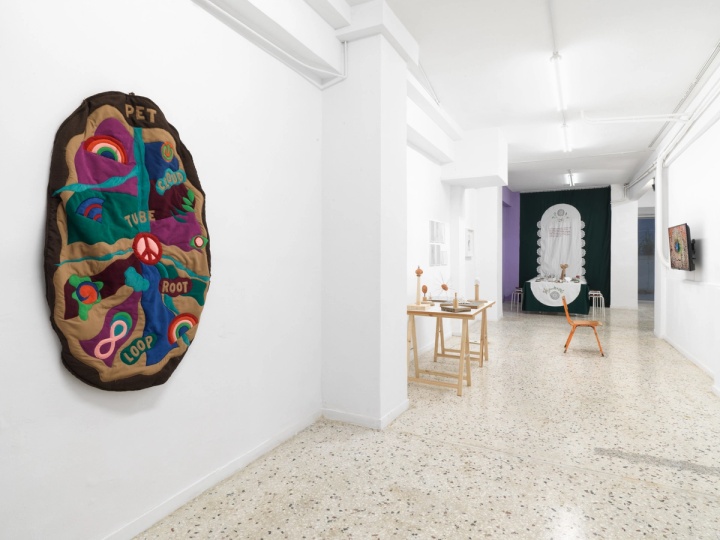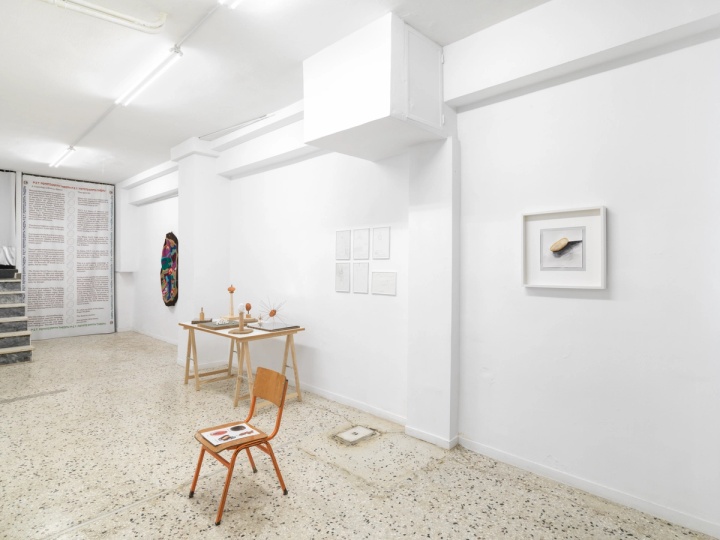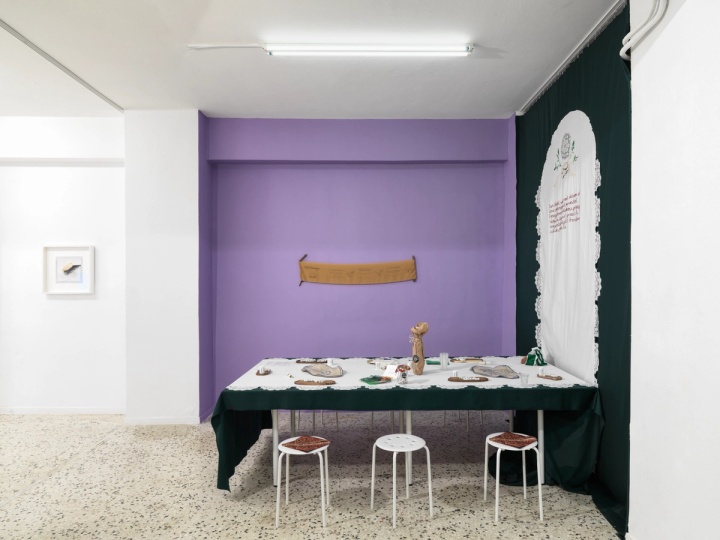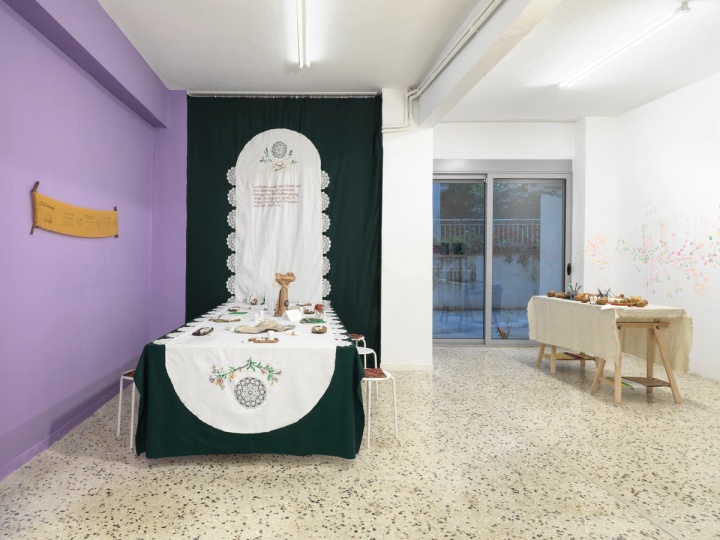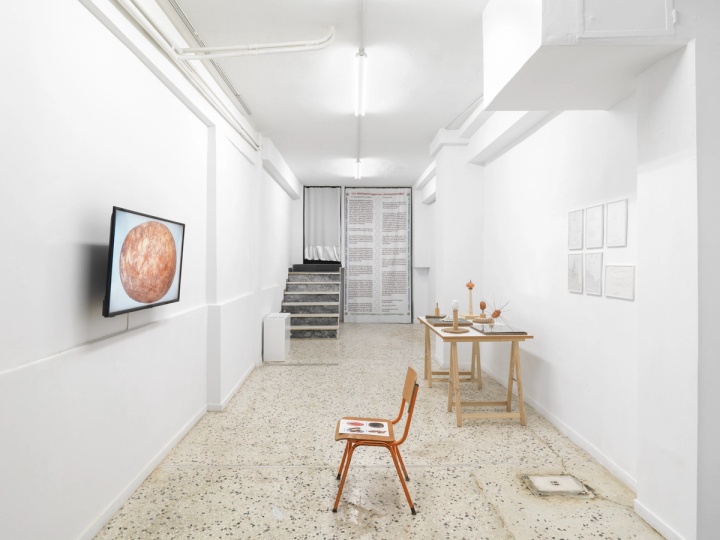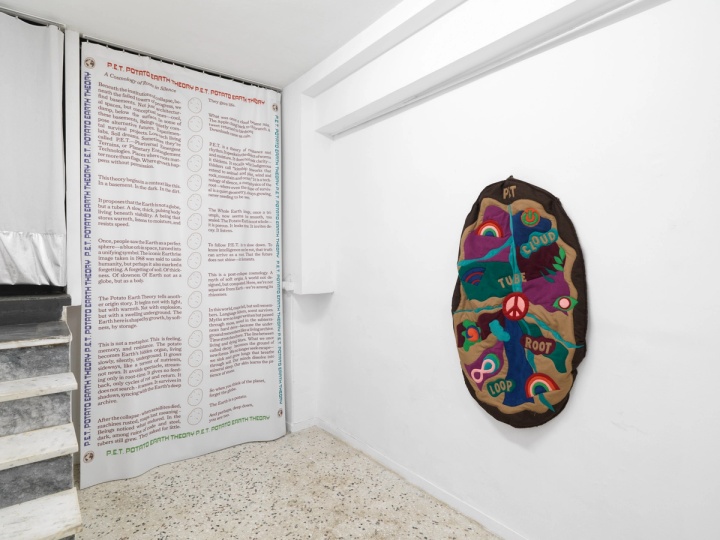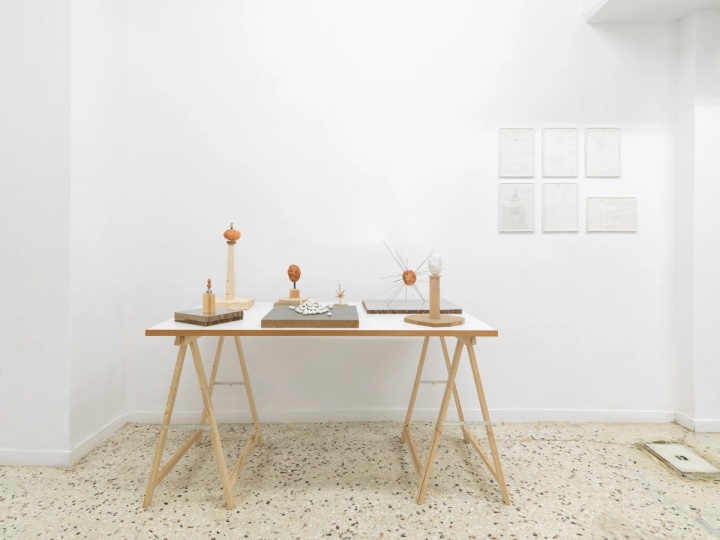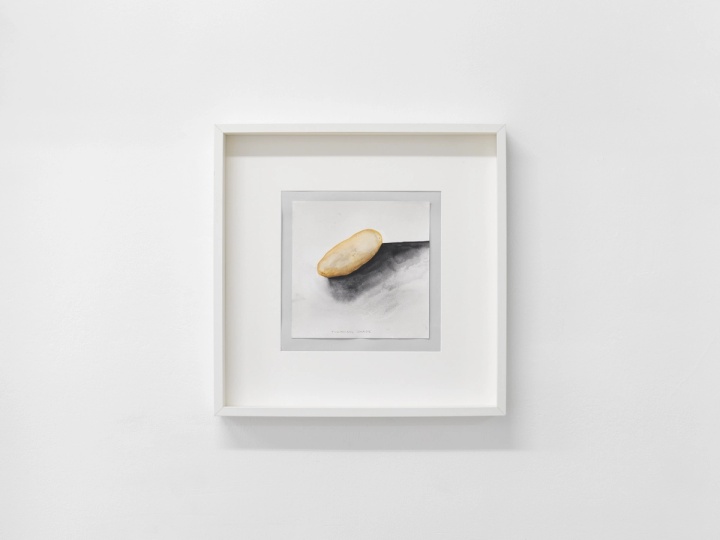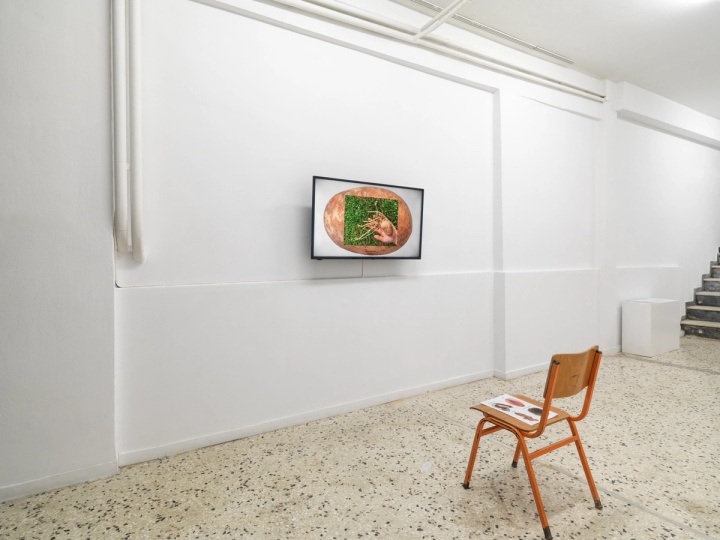Potato Empowering Trajectories Various Artists
P.E.T. Projects
Athens
.–
In 2024, Balkan Projects, believing in the power of art to educate, launched a mentorship program that challenged the traditional teacher–student model. Instead, it created a dynamic, peer-to-peer space where ideas circulated freely, hierarchies dissolved, and curiosity guided the conversation.
The three selected mentees—Darko Aleksovski, Andrea Palasti, and Sunčica Pasuljević Kandić —all from non-EU Balkan countries, worked with established artists for one academic year. This was not about following instructions, but about rethinking how to create. Some initiated new projects; others reimagined existing ones. Mentors Sam Durant, Angelo Plessas, and Ana Prvacki, in turn, used the exchange to reconsider their own practices.
During the mentorship, Serbia experienced a period of national unrest. In November 2024, the collapse of the Novi Sad railway station canopy killed sixteen people, sparking mass student protests against systemic corruption in infrastructure and drawing hundreds of thousands of citizens into the streets. Universities were blockaded, many professors joined in solidarity, and salaries were suspended. Tensions reached a peak when the president dismissed striking academics with the now-infamous remark: “Professors who do nothing but participate in blockades will get potatoes.”
Intended as an insult, the statement backfired.
The humble root soon became a powerful emblem, not only for the professors who carried it on sticks during their marches, but also for us, gathering each month on our screens for the mentorship program. It resurfaced repeatedly in our conversations and exchanges. More than a vegetable, it emerged as resilient, ordinary, and political, with deep roots in art history.
First cultivated by the Inca over 7,000 years ago, the potato spread across continents and fed empires, but dependence on it has also led to catastrophe—most tragically, Ireland’s Great Famine. Its story mirrors the current Balkan condition: survival intertwined with fragility.
This tension persists today. Thriving in poor soil yet weakened by monoculture, the staple crop remains both a global necessity and a reminder that what sustains us can also betray us. Modified, industrialized, and often overlooked, it reflects our complex relationship with nature and power—both literally and metaphorically.
So we gave it a starring role.
Our final exhibition, Potato Empowering Trajectories, places this unlikely figure at the center. Through the work of all six artists, the show explores the potato as metaphor, material, and message—embodying resistance, ecological awareness, and renewal. It reveals what can grow when artists come together to reflect on the present condition, allowing ideas to take root in unexpected ways. In this context, potato becomes a bridge between mentors and mentees while also extending connections beyond the Balkans.
Like the entanglements of roots beneath the soil, the exhibition extends connections that sustain and transform the worlds we inhabit.
So come hungry. Dig deep. These roots go far.
